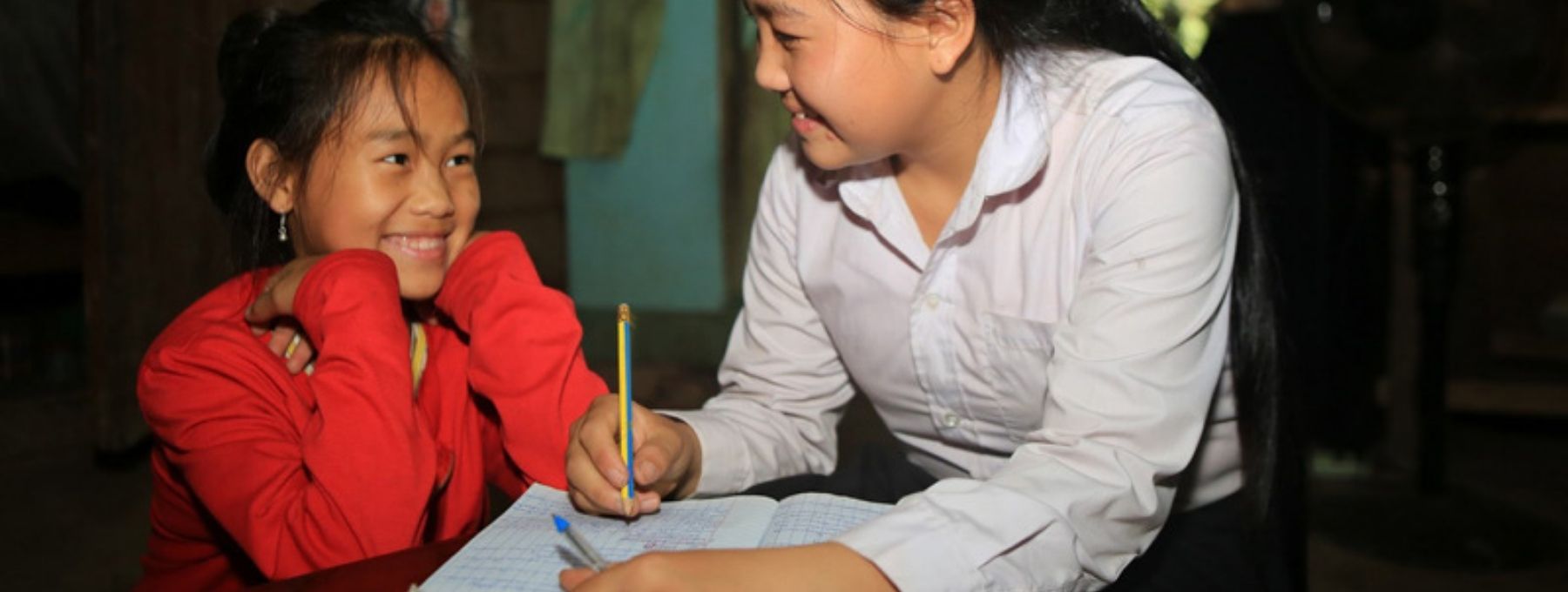8 September is international literacy day, celebrated for the first time in 1967. Its aim is to highlight the importance of literacy to individuals, communities and societies. In this article, we are celebrating international literacy day with some updates from our chosen charity Room to Read.
A Q3 2020 Update
The pandemic has had a huge impact on education across the globe. Over 1.5 billion children and youths are out of school due to the virus and all 16 countries where Room to Read operates, have seen localised or nationwide school closures.
It’s really been a tough year to date. Data suggests that low-income countries and those in sub-Saharan Africa will be most negatively affected as governments struggle to provide remote learning opportunities and guidance to teachers to address student needs. Evidence from past epidemics also shows that adolescent girls are at a particular risk to drop out and not return to school even after a crisis is over. Those in a precarious financial situation are at higher risk of early marriage, sex trafficking and general exploitation when out of school.
But as a non-profit dedicated to improving childhood education and keeping girls in school, Room to Read has been working tirelessly to help communities facing extreme threats to education. Their response has been nothing but remarkable and as Contentworks’ chosen charity, we’re extremely proud of their efforts, encouraging people to donate and invest in the future of children’s education.
A much-needed light during a global storm, Room to Read is going above and beyond to help children remain keen learners. So far, the non-profit has managed to:
Navigating Internet Connectivity Issues
In societies where Class Dojos and whole-class Zoom meetings are the norm it can be hard to imagine a world where internet connectivity isn’t reliable – or doesn’t exist at all. This is the situation many communities face which is why Room to read is prioritising human connectivity by offering distance learning that’s accessible to low-income children such as over the phone mentoring for participants of the Girl’s Education Program. This allows Social Mobilisers to provide emotional and educational support while monitoring risks that might cause a child to drop out of education. While this used to be done face-to-face, it’s now offered through phone calls, video chats and conferences.
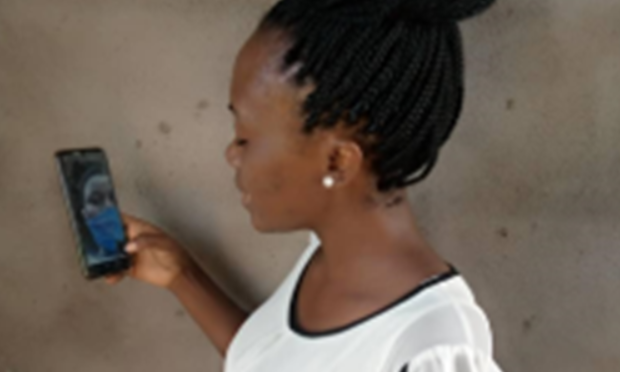
With the help of strong women mentors, girls affected by Covid-19 school closures can navigate obstacles in their education. Room to Read staff focus on girls particularly at risk and provide as much support and guidance as possible remotely.
For example, Ranny, a Social Mobilizer in Cambodia’s Kampong Cham region currently has 140 girls under her watch. Her team are innovating to communicate with the girls through social media channels such as WhatsApp and Facebook Messenger. If a girl does not own a phone, the mentor helps her identify one to use from a parent, relative or neighbour and efforts are made to establish the right method of communication.
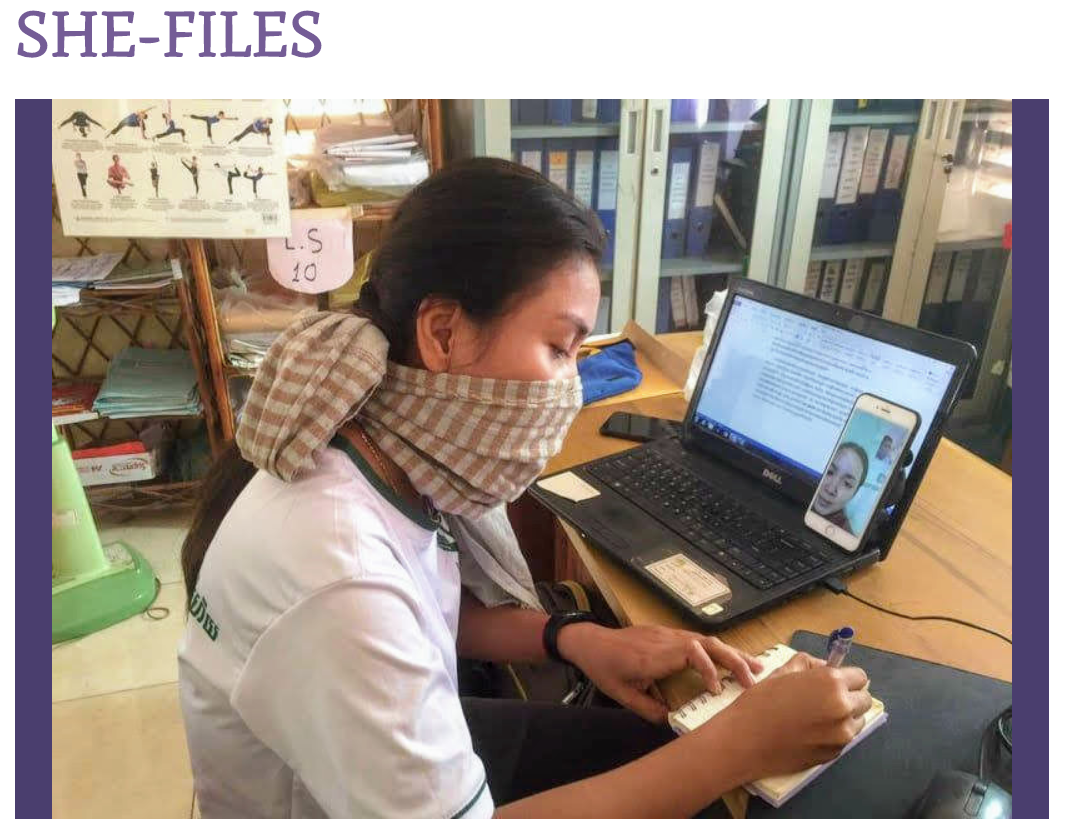
Offer Educational Instruction Via Radio Broadcast
Those without internet can also benefit from educational radio broadcasts. This is happening in countries like Sri Lanka, Nepal and South Africa where Room to Read is partnering with local radio stations to broadcast literacy activities. According to UNESCO, 75% of households globally have access to radio, so these broadcasts allow this dedicated non-profit to reach children and their parents who may not even have access to a computer, let alone an internet connection.
In Tanzania, Room to Read has also partnered with the Tanzania Institute for Education to secure government-sponsored radio time for educational learning in order to broadcast Life Skills Education materials from the Girls’ Education Program. And in India, more than 8,000 households from Begeshwar, Uttarakhand are being reached through CCN Channel to telecast read aloud stories and audio activities for children.
Distribute Print Materials in Local Communities
Many people can’t travel far during covid-19 and therefore without access to online tools it’s important to make literacy materials available. Room to Read has managed to do this by providing printed literacy workbooks that are distributed with food packages. These are then picked up by parents from the school.
Launch ‘Literacy Cloud’, a Digital Learning Platform
Taking a multi-pronged approach to social distanced learning, Room to Read has also made their online learning platform known as the Literacy Cloud public. This offers easy-to-access online books which are available to download for offline use and tailored to each specific reading level. The platform currently offers storybook titles in English and Bahasa Indonesia and will be quickly expanding in multiple additional languages in the coming weeks and months including Hindi, Kiswahili, Vietnamese, Nepali, Sinhalese, Bengali, Khmer, Lao, Mandarin, Cantonese and Spanish.
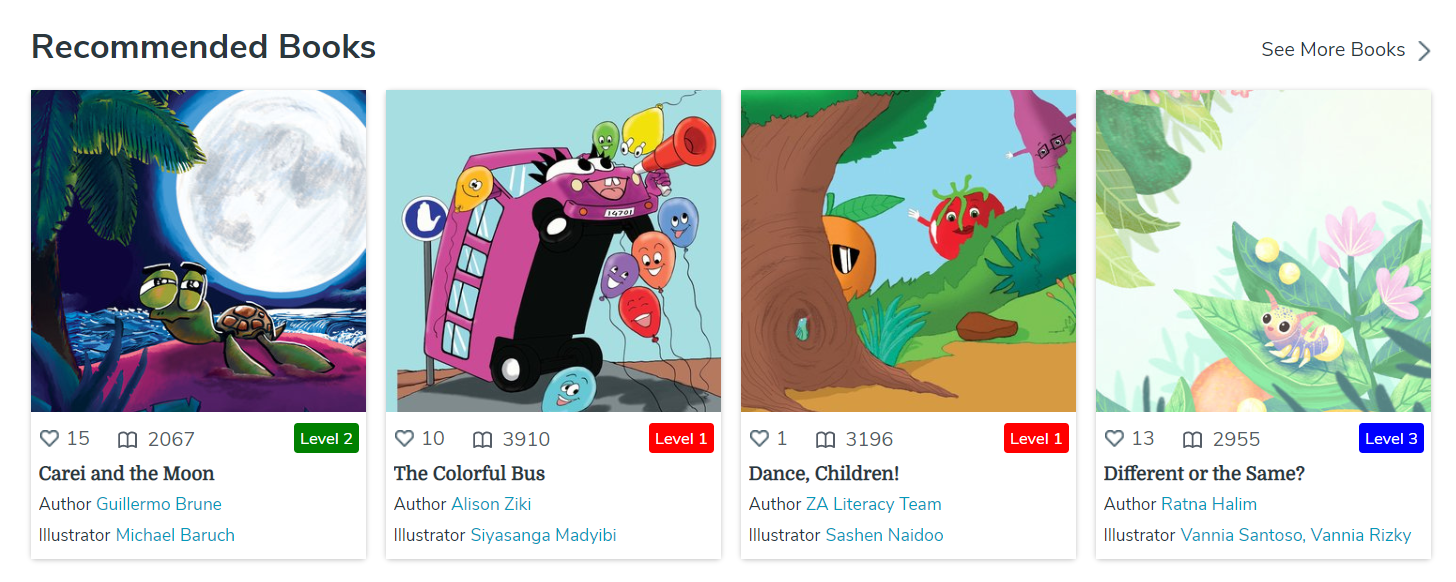
Garner Celebrity Support
Room to Read also released a library of celebrity read-aloud videos designed to attract, engage and make education as fun as possible during this turbulent period. Celebrity readers include Callan Farris of The Disney Channel’s ‘Gabby Duran and the Unsittables,’ Isla Farris of Star Wars: ‘The Mandarlorian,’ Elias Harger of ‘Fuller House,’ Dilshad Vadsaria of ‘Second Chance’ and prominent business leaders including Samantha Barry, Glamour Editor-in-Chief and Vicky Tsai, founder of Tatcha. Celebrity readouts were released weekly throughout the height of the pandemic.

Speaking about the public launch of the Literacy Cloud, Dr. Geetha Murali, CEO of Room to Read said:
“Education is a stabilising force during times of crisis and as a publisher of more than 1600 titles and distributor of 26 million children’s books in 42 languages, Room to Read is uniquely positioned to bring the joy of reading to children in their homes as they find themselves displaced from their classrooms and libraries. Parents and educators in the U.S. and around the world engaged in distance learning can instantly access beautiful, engaging and fun children’s books along with paced read-aloud videos designed to inspire young readers and help them become global citizens. These globally diverse books created by local authors and illustrators from around the world will help children develop empathy and understanding for experiences and cultures beyond their own.”
As a digital content marketing agency, we really love the emphasis on global diversity and opening up the wider world to children through literacy.
Develop e-Content
During the pandemic, Room to Read strived to develop their e-content for each audience. As an Indian case study, the focus has been on catering to the needs of children whose home language is different. Various local language materials have been developed with nearly 50 flip books made available in Gondi Dantewada and Gondi Kanker for tribal children in Chhattisgarh and Nimadi and Bareli for tribal children in Madhya Pradesh.
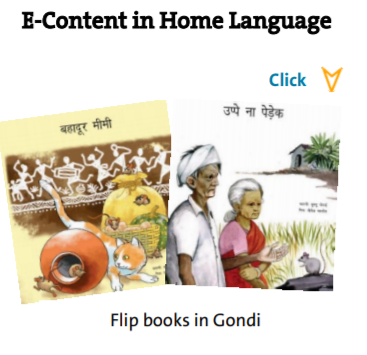

Statistics to celebrate
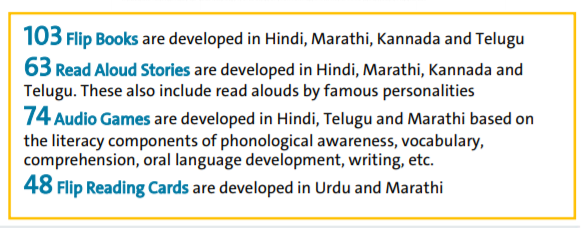
The development of e-content has also been extended to the Girls’ Education Program. For example, 6 e-newsletters were produced in Hindi, Telegu and Marathi for girl scholars and wardens. These newsletters help girl scholars develop a broader perspective on a wide range of topics from science to superwomen.
Room to Read also released multiple parent champion podcasts in Hindi and Telugu focusing on success stories of those families where the girl scholars continued to pursue education against all odds. As many young girls need the support of their families to stay in education, especially during the pandemic, these podcasts are designed to motivate girls, parents, teachers and wardens and encourage girl to study without dropping out or getting married early.
Arrange Online Reading Periods
During covid-19, children that would have normally enjoyed time at the library are now making the most of virtual reading periods thanks to the innovative and adaptive mindset of Room to Read. These online sessions in countries like Vietnam allow students to practice their literacy skills and share stories with their teachers and classmates. This is, of course, a great way to stay in touch with others during lockdowns and periods of isolation. Such reading periods help keep students engaged in distance learning activities by providing a space and time for children to connect over books. The reading periods also allow for communication between parents and teachers.
Encourage Parent Engagement Through Messenger Apps
The global pandemic has meant that many parents are now taking on the role of teacher or educational supervisor. This is not an easy task which is why Room to Read teams in countries such as Cambodia have developed short videos for parents with tips and guidance on how to engage their children in reading and literacy activities. The team shares these videos through messaging apps offering regular support and a hassle-free method of communication.
In addition, the Literacy Program team follows up with parents on a regular basis via calls and texts to check on the progress of their children, answer questions and provide encouragement. The whole point is to create a socially distanced educational environment that doesn’t feel scary, lonely or overly daunting for anyone.
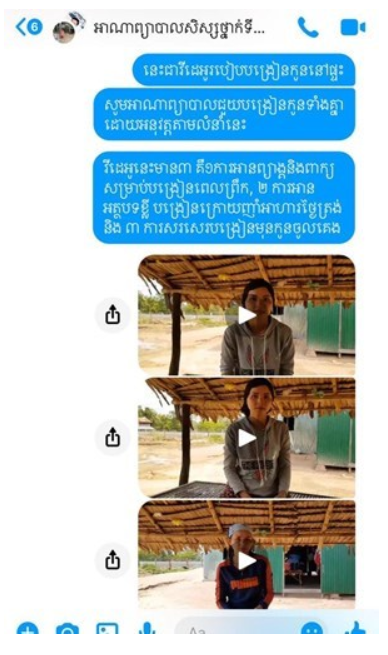
Set Up Urgent Appeals
Going above and beyond requires urgent funding which is why Room to Read has also created unique Covid-19 appeal content. The main call to action is to keep children in vulnerable communities learning so that they can get back to school and there are two main requests – Start a Fundraiser or Donate Now. This is followed by simple, step-by-step instructions making it super easy to support the Room to Read non-profit organisation.

Donate now and help Room to Read continue to hit literacy milestones throughout the pandemic. Happy International Literacy Day from the Contentworks Agency Team. Keep the dialogue flowing by using #internationalliteracyday on Instagram and Twitter.
